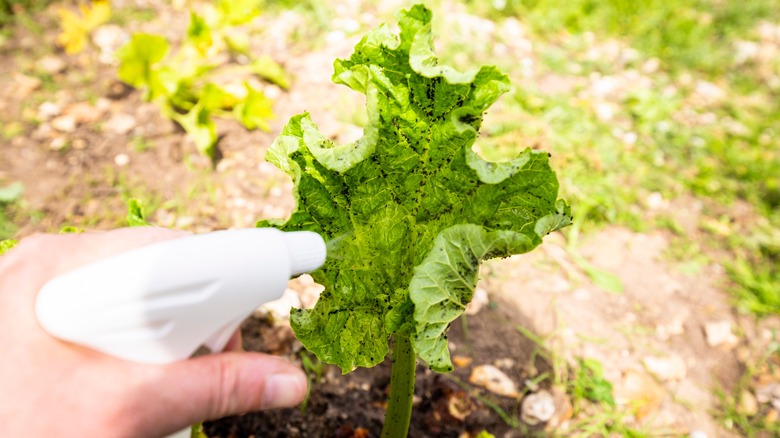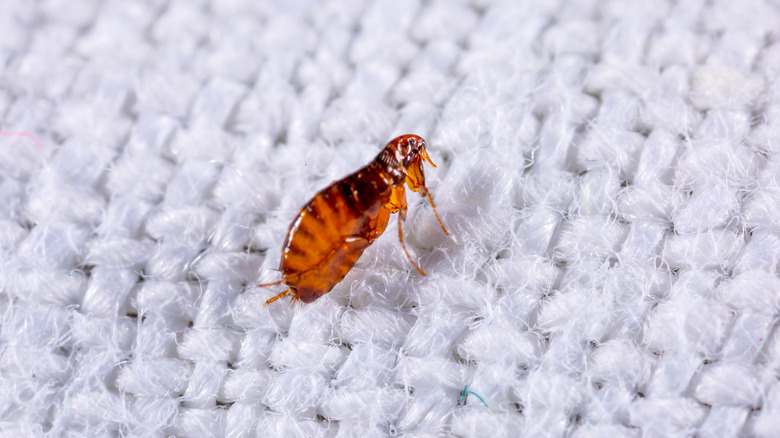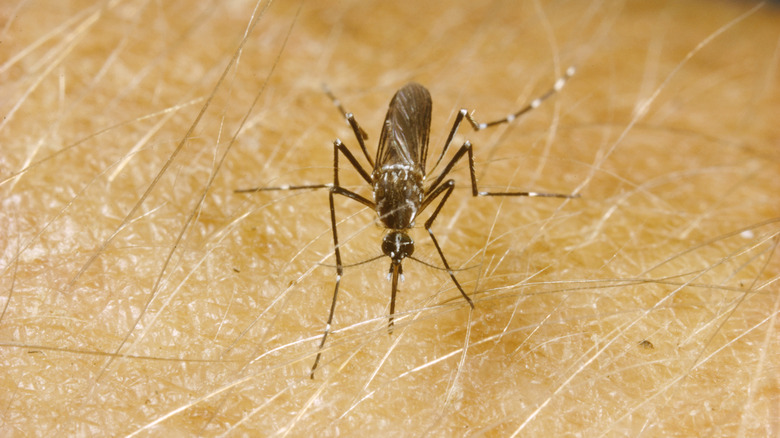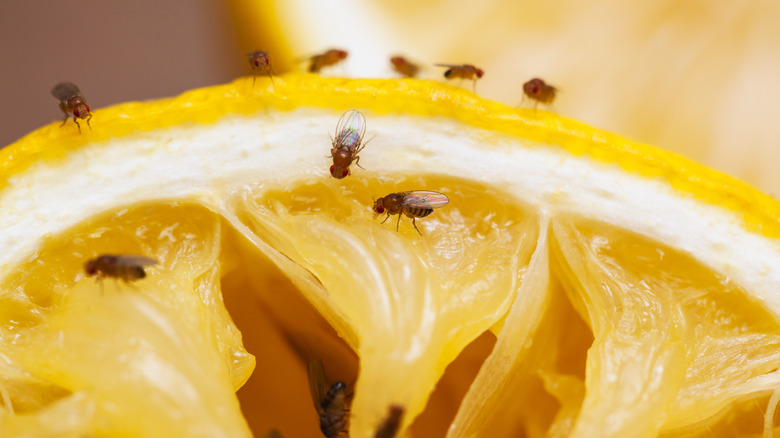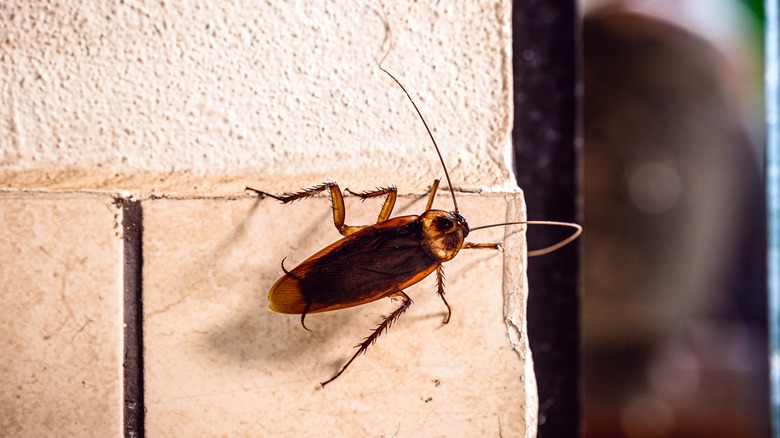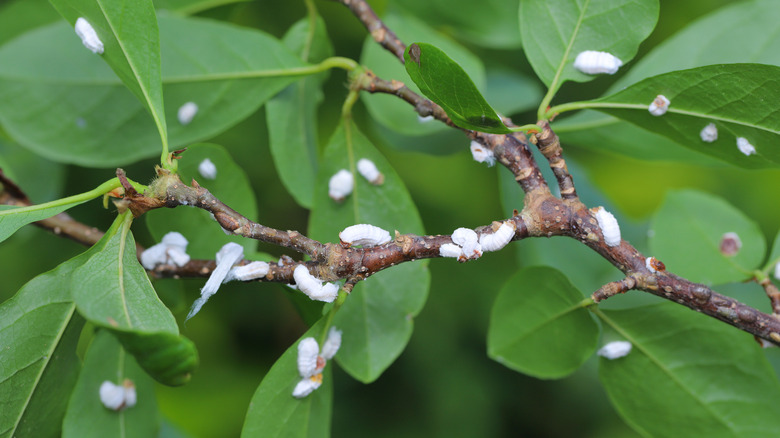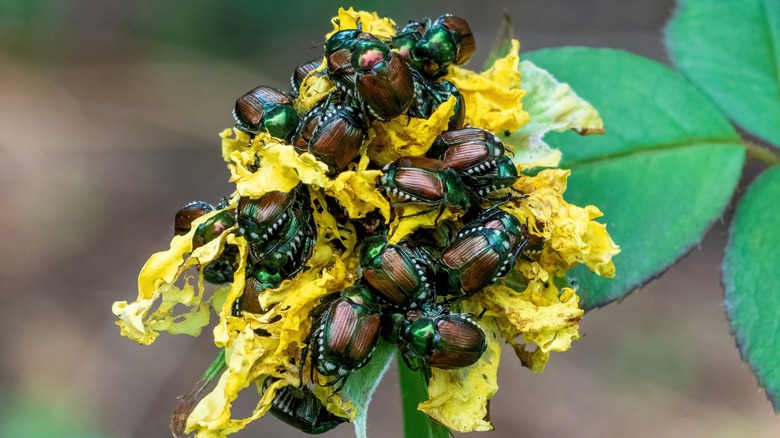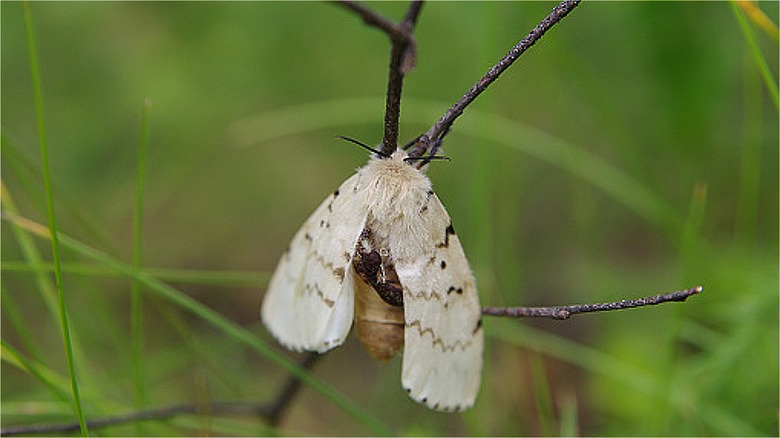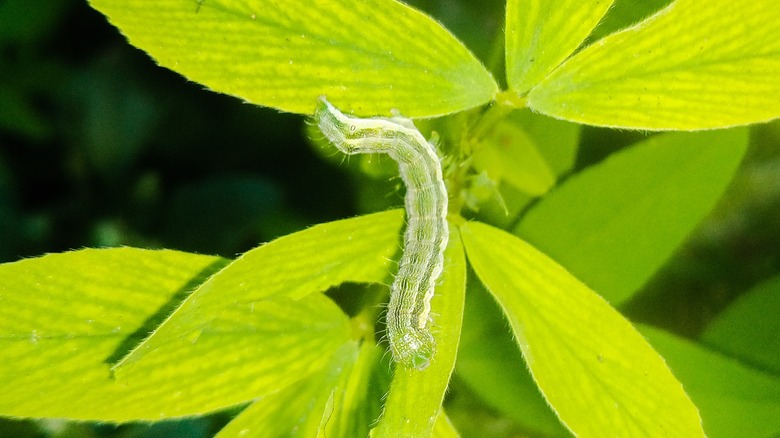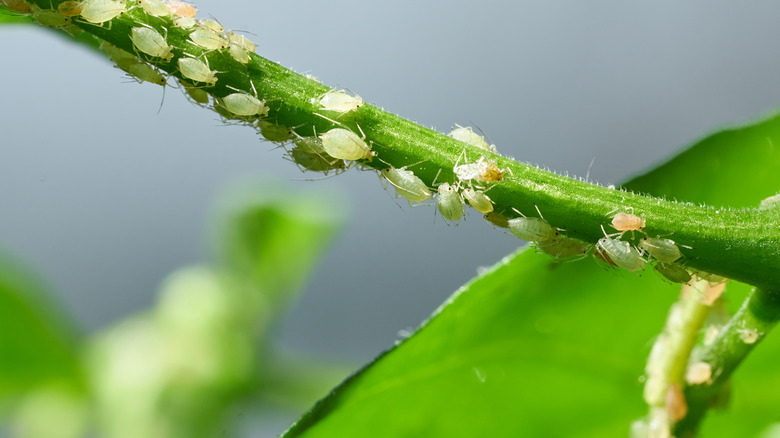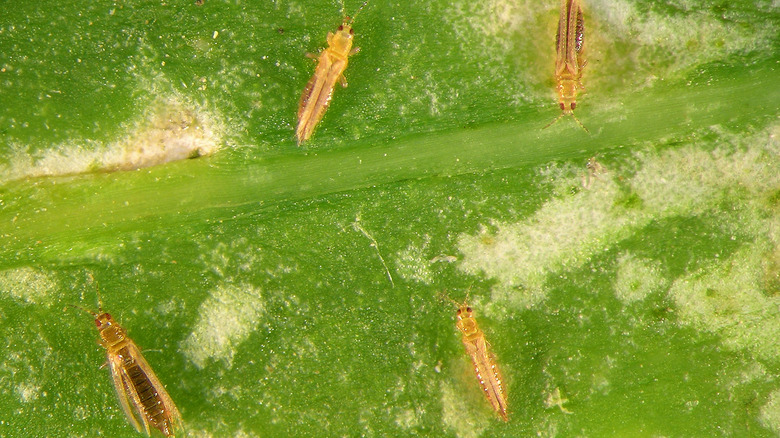How Neem Oil Affects 10 Common Home And Garden Pests
Critters getting into your home and garden is inevitable. After all, you share the earth with these insects. However, that doesn't mean they are welcomed into your space, especially when they can harm you, your pets, and your plants. Neem oil is a natural solution that's used to deal with several common pests that you may come across. The lipid is derived from the neem tree's seed and can be used in various ways to control multiple bugs, from mosquitoes to roaches. Neem oil affects each of these common critters differently, whether by stopping their reproduction cycle or seizing their appetite. Discover how this pest control spray affects 10 of the common pests you may find around your home and garden (per an article published by the National Academies Press).
Azadirachtin is the most active ingredient in neem oil and gives the seed extract its pest control properties. It messes with the insects' hormones which, in turn, compromises their ability to survive. While lethal to unwanted bugs, it does not affect beloved creatures such as mammals, birds, and bees (though it can harm aquatic life and should be kept out of bodies of water). Therefore, it is a great natural ingredient for DIY bug extermination that doesn't harm the environment.
1. Fleas
Fleas are common pests that can hitch a ride on your pets and enter your home. They can feed on you and your furry friends, causing irritation and even disease transfer. Neem oil can repel fleas, delay their growth, stop their eggs from hatching, and keep them from feeding, leading to their demise. If the insects are on your animal companion, dilute the neem oil in olive oil in a 1 to 10 ratio and spray it on your pets, per PetMD. However, first check with your veterinarian and ensure your furry friends don't ingest it at all.
2. Mosquitoes
If you've ever been covered in itchy bites after being outside, mosquitoes could be the culprit. Not only that, but they can also carry diseases, making them dangerous. Fortunately, they are a nuisance that neem oil can help control. While it may not work on adult mosquitoes, neem oil acts as an insecticide to eradicate these pests in the larva stage. When applied to the larvae, the oil causes the young mosquitoes to stop eating, and they can eventually die within 24 hours. For this to be effective, however, a high concentration of the oil must be used.
3. Fruit flies
Fruit flies can plague your plants outside and, in time, the fresh produce you bring inside as well. As the insects develop underground, you can apply neem oil directly to the soil to keep the fruit fly pupae from growing into pesky fruit-eating adults. Further, studies have shown that, unlike other pesticides, neem oil doesn't kill the beneficial parasitic wasps that grow inside the pupae. It is a simple and non-toxic method to get a handle on your outdoor fruit fly infestation.
4. Cockroaches
Neem oil can also help you get rid of unwanted roaches. The seed oil acts as an insecticide for young cockroaches and can prevent the adults from laying eggs, minimizing their spread. Just dilute the oil with water and spray the critters or their high-traffic areas. You could also use neem powder instead, if preferred. Neem is poisonous in bait form as well, so if these crawlers consume food infused with neem, it can stunt their growth.
5. Mealybugs
Mealybugs are a common garden pest that feeds on plant sap, causing damage to the greenery. They can affect both outdoor crops and houseplants. Luckily, neem oil can be used as a repellent to keep these pests off your plants. If the invasion has already started, the oil is still beneficial, as it can curb the bugs' feeding, killing them over time. A mixture of 2 tablespoons of neem oil, 1 quart of water, and a small amount of dish soap can be sprayed onto the bugs to eliminate them.
6. Japanese beetles
Neem oil can slow the growth of various beetles in the larva stage, including the popular garden pest, Japanese beetles. In this stage of development, the insects are sensitive to neem oil and won't feed on any plants covered with the seed extract. This eventually stunts the beetle's growth. Spraying infected plants with neem oil is a top DIY solution for keeping pesky Japanese beetles out of your garden.
7. Gypsy moths
Spongy moths, formally known as gypsy moths, are invasive pests native to Europe that could wreak havoc in your local green space. When neem oil is used against the larvae of these moths, it stunts their growth, disrupts their feeding, and leads to their death. During this development stage, the insects are caterpillars that can feast on your entire garden and even kill your plants. Spray the neem oil onto the affected plants to cut their dinner short and prevent the caterpillars from growing into moths.
8. Corn earworms
We're not the only species that likes corn. When you pull back the husk, you might notice corn earworms curled on the kernels. You can use neem oil to stop these worms from growing and feasting on the crops. The oil suffocates the pests, stops them from feeding, and prevents their development. You can dilute the neem oil to make a DIY pesticide. Add 1 part neem oil to 20 parts vegetable or corn oil and drop the solution onto the tip of each ear of corn.
9. Aphids
Yellow or curled leaves may be a sign your plant is suffering from aphids, a very common garden pest. Fortunately, you can also get rid of aphids with neem oil. The oil interferes with the insect's reproductive system and the aphid won't be able to produce offspring. Neem oil can inhibit the aphid's feeding, weakening them. It also disturbs their molting process, which is when the aphid sheds its old exoskeleton to make way for a larger one. However, for neem oil to be effective, it must be applied directly onto the pests.
10. Thrips
Thrips don't just feed on your plants — they can also transfer diseases and viruses. You'll want them gone as soon as possible, and neem oil can help with that. Neem oil doesn't kill adult thrips with direct contact, but spraying it onto your plants could help protect them from this pest. However, this pesticide has been proven to stunt the growth of thrip larvae in the soil. To create an anti-thrip solution, mix 4 teaspoons of neem oil, 2 teaspoons of dish soap, and 1 gallon of water before misting it onto your plants and soil.
